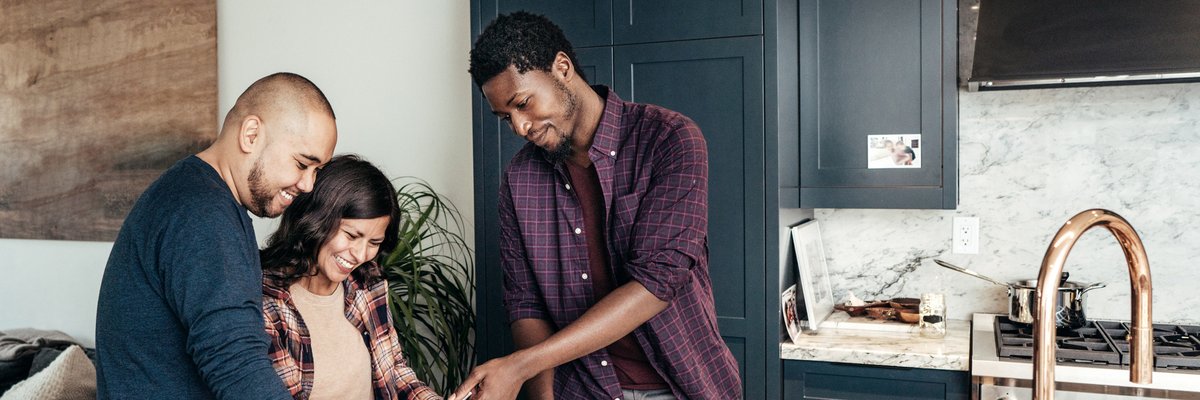Can You Get Away With Making Less Than a 20% Down Payment on a Home?
KEY POINTS
- Putting less than 20% down when you buy a house with a conventional loan means paying for private mortgage insurance (PMI).
- Making a smaller down payment gives you more flexibility for moving costs, emergencies, and fun purchases for your new home.
- Having a good credit score, minimal high-interest debt, and an emergency fund are more crucial to successfully becoming a homeowner.
Buying a house isn't cheap -- and one of the biggest parts of the equation is a down payment. If you're buying a home using a government-backed mortgage, like a VA, USDA, or FHA home loan, your down payment requirement could be as low as $0. But if you intend to buy with a conventional loan, you will likely have to put some amount of money down.
According to the National Association of Realtors, the average down payment for a first-time buyer in 2022 was 8% -- while repeat buyers put down an average of 19%. Making a down payment under 20% for a conventional loan means signing on for private mortgage insurance (PMI) payments, though.
PMI is protection for your mortgage lender if you stop making payments on the home loan. But is PMI really such a big, bad boogeyman? Here's why making a smaller down payment for a home isn't a tragedy -- and how it may put you in a better financial position as a new homeowner.
Smaller down payment = more money for other expenses
It's a good idea to put some amount of money down on a home purchase because doing so can make it easier to get approved for a mortgage and will make your monthly payments smaller. But here's how making a down payment under 20% can give you more flexibility.
More cash for moving and up-front expenses
Moving isn't cheap, and if you're upgrading from an apartment to a home, you're likely signing on for new and different expenses. Personally, I was happy to pay for movers recently to get my belongings out of a second-floor apartment and into my new home.
I also paid up front for a lawn care service to cut my grass for the rest of the mowing season -- as a renter, that wasn't my responsibility.
More cash for emergencies
Having some money in a savings account for emergencies is a smart idea if you're looking to buy a house. You won't have a landlord to call anymore when something breaks -- if there's a leaky pipe in the basement, a broken hot water heater, or a clogged kitchen sink, it's on you to fix it (or pay someone who can).
More cash for fun stuff
If you leave yourself some money left over when you buy, you'll be able to afford fun purchases like paint and new furnishings without taking on debt. I recommend putting these costs on a credit card, especially if you have one that pays bonus rewards on home improvement costs. Just don't carry that balance forward -- make the purchases and pay off the card.
PMI isn't forever
It's also worth considering that PMI isn't a permanent addition to your mortgage payment -- it'll be canceled when you reach 20% equity in your new home. Plus, depending on how much you're borrowing and your credit score, it might not even cost you all that much.
I'm paying for PMI on my new mortgage until I reach 20% equity in my home. But my PMI bill comes to less than $40 per month, likely due to having excellent credit and a house that cost far less than the average home price in the U.S. I'm getting peace of mind worth far more than $40 a month from making just a 10% down payment and leaving myself more savings when I bought the house.
You may be ready to buy, even without 20% down
Even if you don't have 20% of a home's purchase price saved up, you don't necessarily have to wait to buy a house. Other factors are also important, especially if you can afford the additional monthly cost of PMI.
- Decent credit score: A FICO® Score of at least 620 is the minimum to get a conventional loan. But the higher you can get your credit score, the more money you stand to save on a loan since it will help you qualify for the best mortgage rates and pay less for PMI.
- Minimal or no high-interest debt: If you have a lot of high-interest debt, it's worth paying it down before contemplating buying a home. Doing so will boost your credit score and free up more of your income for all the expenses of homeownership.
- An emergency fund: Buying a home with no money in savings is a terrible idea. Not having an emergency fund could mean winding up in debt immediately in the event of an unplanned home repair.
- Homeownership interests you: Ultimately, none of this matters unless you actually want to own a home -- if you don't, you shouldn't buy one, no matter how much you could put down.
Becoming a homeowner can be good for your finances if you approach it in the right circumstances and in the right way. Don't assume that a 20% down payment is a hard requirement -- you may be able to put less down and still be just fine.
Our Research Expert




